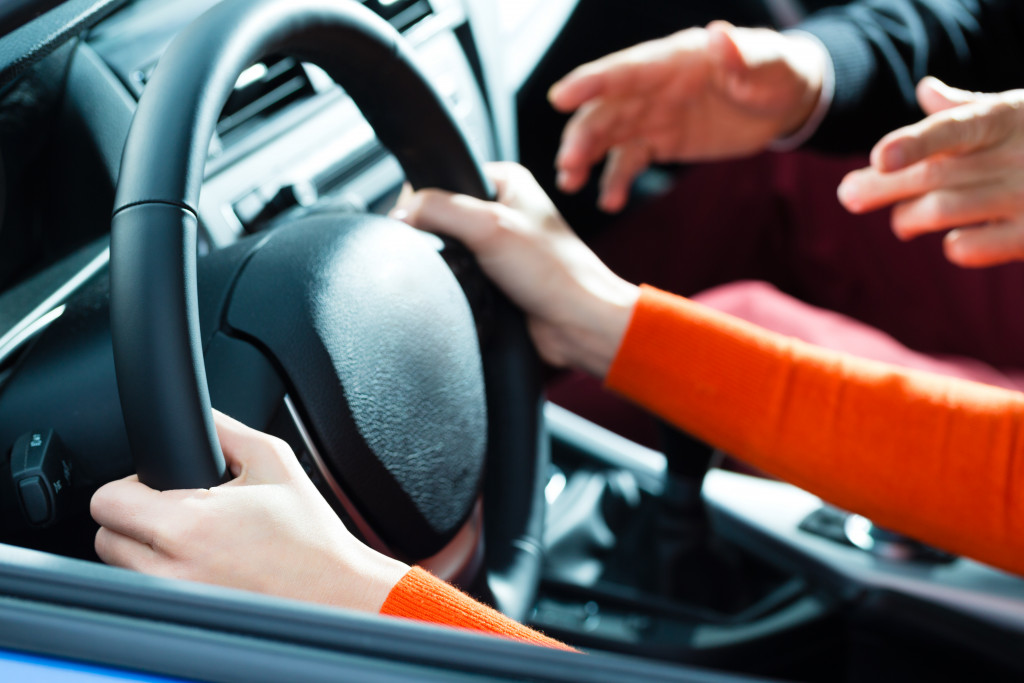In the USA, the average minimum age to be allowed to drive is 16. Some states require one to be 18 years old before they can apply for a learner’s permit. In some states, you can apply for a learner’s permit at age 14. This might sound young to many, though let’s remember that there have been studies on how younger learners have the open mind and flexibility to learn better than their older counterparts.
While driving school may teach driving safety, defensive driving, accident management to our young ones, modeling responsible driving behavior is mostly up to the parents.
Before Getting Behind the Wheel
Typical risk factors for accidents involving teen drivers include driver inexperience, nighttime driving, distracted driving, driving while drowsy, reckless driving, not wearing seat belts, and driving under the influence. Below are other considerations a teenage driver must make before hitting the road:
Wear seat belts. Seat belts have been proven to significantly reduce the risk of serious or fatal injuries caused by car collisions.
Never drive under the influence. Make sure your teen does not take any alcohol or narcotics before attempting to drive. Drunk driving is extremely hazardous for all drivers at any age, but more so for inexperienced drivers.
Keep all distractions away. It is never safe to be on the phone while driving. Instruct your teen to pull over to the side of the road under safe conditions if you need to place an important phone call.
Get to know the vehicle. It is important to familiarize oneself with and know one’s way around a car, especially one he is driving for the first time. Have your teen locate the most important features such as headlights, turn signals, hazard lights, and windshield wipers. He has to know how to work the transmission — is it stick shift or automatic? And just before he starts the engine, he should adjust the seat, steering wheel, and mirrors as necessary.
What Parents Can Do to Promote Driving Safety for Their Teens

Car accidents are avoidable, and parents are integral in helping keep teen drivers safe and responsible on the road.
It is ideal that, as your teen learns how to drive, you ride along for about 30–50 hours, minimum. The more guided practice your teen gets, the better.
Practice driving with your teen in different kinds of weather, in light, moderate, and heavy traffic, and at different times of the day to simulate various road conditions.
Limit, if you cannot completely restrict, nighttime driving. Mandate that your teen makes it a point to be off the road at a specific time in the evening during the first few months of obtaining their driver’s license.
Allow your teen only one young passenger while driving for the first few months after obtaining their driver’s license.
Wearing seat belts is non-negotiable. Strictly enforce this, regardless of the distance of the drive.
What to Do When in a Car Accident
Ensure your teenaged driver knows what to do if they get involved in a car accident.
Check for Injuries. Check everyone on board the vehicle at the time of the collision for any injuries. Be wary that not all injuries are visible externally. Dizziness or nausea should be reported immediately.
Report the Incident. If a call to 911 is warranted, your teen should know to report the Who, What, and Where of the accident. Your teen should stay on the line until the dispatcher indicates otherwise. Also, explain to your teen that he can request police assistance not just for injuries but also to keep the order.
Take note of driver information. Teach your teen how to respectfully ask to see the other driver’s license and take down important details such as name, license number, contact number, address, insurance details, and license plate number.
Take Notes or Pictures. For minor crashes, have your teen detail it in writing and try to take pictures. Take note of details such as the scene, damages, roads, traffic signs, and the direction of each vehicle.
When parents sign for a minor (under 18) in the application for a learner’s permit, they also state that they accept the minor’s financial responsibility. The DMV requires proof of financial responsibility (or insurance) in the early stages of obtaining a driver’s license. This proof must be carried at all times in the vehicle. Even when you are properly insured, it is still good sense to contact a car accident lawyer if your teenager figures in a car crash or accident.
